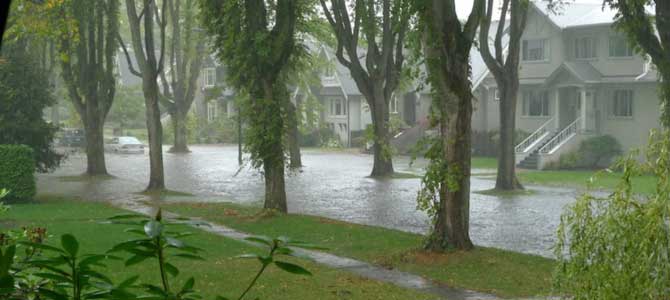
 Vancouver’s Climate Change Adaptation Strategy aims to build resilient communities and support the local economy
Vancouver’s Climate Change Adaptation Strategy aims to build resilient communities and support the local economy
City Council approved the forward-looking recommendations made in the 2024-2025 Climate Change Adaptation Strategy (CCAS) update today, which focus on reducing Vancouver’s risk to climate change-related hazards, while enhancing resilience.
“Vancouver is investing in proactive adaptation measures to build a more resilient, equitable and healthy city in the face of climate change,” said Mayor Ken Sim. "With support from other levels of government and partners, we’re investing in actions to enhance Vancouver’s green space, expand our tree canopy, update our buildings, and implement initiatives to strengthen our infrastructure and neighbourhoods, reducing risk and enhancing our climate resilience.”
The updated CCAS focuses on actions to respond to the five main climate change-related hazards affecting Vancouver: extreme heat, poor air quality (due to wildfire smoke), drought, extreme rainfall, and sea level rise. Building on prior successes and innovation, the 2024-25 CCAS includes over 60 strategic actions to support people, ecosystems, and infrastructure by reducing risk and enhancing resilience to these hazards.
Highlights include:
- Planting trees, in partnership with Vancouver Board of Parks and Recreation, to increase natural cooling through shade and expand our urban forest canopy to 30 per cent by 2050 with a focus on low canopy areas.
- Retrofitting 30 buildings through the Rental Apartment Retrofit Accelerator External website, opens in new tab and Non-Profit Resilient Retrofit Grant External website, opens in new tab programs to add cooling and reduce building emissions.
- Expanding green rainwater infrastructure (GRI) across the city, incorporating it into three hectares of City street projects to enhance the natural environment, support drainage and mitigate urban heat island effect.
- Developing a city-wide coastal adaptation policy to continue planning and preparing for sea level rise and coastal flooding, and constructing a Sea2City coastal adaptation pilot project.
Benefits and outcomes
The actions in CCAS benefit the health and safety of residents through enhanced green space access, more cooling spaces and better indoor air quality during heat and smoke events, along with improved infrastructure. Proactive adaptation planning also supports economic innovation and direct and indirect savings for every dollar spent External website, opens in new tab. Foundational to the CCAS, and adaption plans from other levels of government, is the recognition that climate change disproportionately impacts already vulnerable populations, and each action includes an 'equity outcome' aligning with the City's commitment to equity.
Our changing climate
British Columbia experienced its most fatal climate-related event in 2021 (heat dome), costliest weather event (2021 flooding), and the most destructive wildfire season on record in 2023. The updated CCAS is based on new climate change projections to 2050, which predict Vancouver will experience increased intensity and frequency of heavy rainfall, warmer winters and hotter, drier summers. By mid-century more intense climate-related events are anticipated and sea level rise will continue to create more challenges. Without taking adaptation measures now, these changes will result in overland and coastal flooding, damage from storms, increasing stress on managed and natural systems, and health impacts for vulnerable populations such as overheating during increased summer high temperatures.
Background
In 2012, Vancouver was the first jurisdiction in Canada to adopt a proactive Climate Change Adaptation Strategy to pioneer climate solutions and innovation across City departments. The strategy was updated in 2018 and is now on its third iteration. In 2025, City staff will present a joint climate mitigation and adaptation plan to Council, emphasizing the dual importance of this work, and aligning with the City's commitment to address evolving climate challenges with science-backed solutions. Reconciliation is also integral to adaptation planning and staff are committed to collaboration and consultation with xʷməθkʷəy̓əm (Musqueam), Skwxwú7mesh (Squamish) and səlilwətaɬ (Tsleil-Waututh) Nations for the 2026-30 climate plan. By enhancing collaboration and aligning with the national and provincial adaptation strategies, the City will also be well-positioned to access funding opportunities to build a safe, healthy, resilient and equitable city.